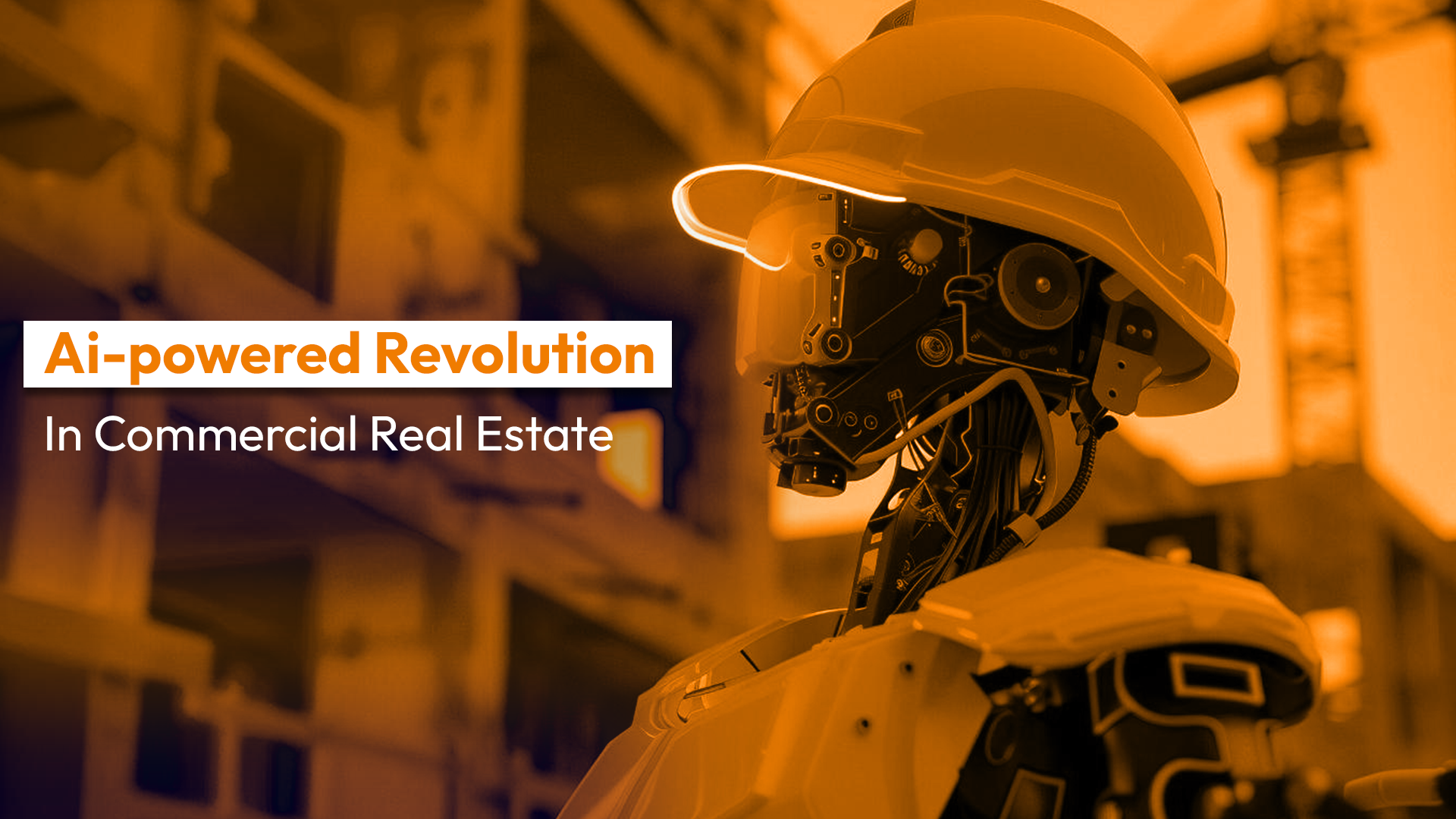The AI-powered change in commercial real estate is making waves at multiple levels. Advanced algorithms assess large datasets for property value, market trends, and tenant behavior. This leads to accurate investment calls for tenants and owners. Automation will streamline property management, from lease negotiations to maintenance scheduling, while predictive models would forecast required demand, lowering vacancy risks. This shift would provide a long-term benefit for participants to navigate the CRE space.
Introduction
The commercial real-estate sector is changing through quick AI integration. Ranging from management to property development, valuation, and leasing, AI-driven is changing how optimization, operations, and innovation is performed in a billion-dollar space. With the capability to assess large datasets, make processes seamless, and improve decision-making, AI is not just a simple tool, but a holistic tool to transform commercial real-estate with a focus on property management and construction.
AI in Construction: Building Smarter Foundations
One of the most significant applications of AI in commercial real estate is embedded in construction. Artificial Intelligence within construction is changing how projects are planned, designed, and implemented. Legacy construction projects have been ridden by challenges like cost overruns, delays, and miscommunication between project participants. AI helps stakeholders leverage information-driven insights to enhance every process step.
For example, AI-driven algorithms can assess architectural plans and historical project information to analyze risks including bottlenecks and structural weaknesses. Predictive capacities support developers resolve issues before they manifest saving money and time. Moreover, AI within construction uses generative design while using algorithms to generate building layouts based on factors like space needs, budget, and environmental impact. This not only expedites the design phase, but ensures commercial properties are efficient and sustainable.
The Role of AI in the Construction Industry
AI in construction trends are changing the larger ecosystem of commercial real-estate development. Construction firms are heavily using AI software to manage large-scale projects. Machine Learning (ML) can help stakeholders predict labor availability and material costs. It supports firms bid more efficiently for CRE contracts. This capability to predict insights is an invaluable features when margins are condensed.
Furthermore, AI within construction industry applications also move toward workforce management. AI-led platforms can enhance timelines to ensure the right team of people work with required skill sets that are deployed on time. The use of drones reinforced with AI-driven analytics are becoming common while providing real-time aerial visualizations of the site. These tools track progress, check plan deviations, and analyze project safety compliance, which mitigates the chances of rework. For commercial real-estate professionals, projects need to be completed quickly and with lower issues, which translates to greater ROI.

AI Cameras for Construction: Eyes on the Ground
The use of AI cameras are changing the dynamics of how construction sites are tracked and managed. Unlike legacy security cameras, their AI counterparts are reinforced with reality capture and computer vision to identify objects, monitor movements, and assess events in real-time. For example, these cameras can detect the presence of absence of safety wearable’s or gear, identify unauthorized people, and detect equipment issues before they are manifested.
Beyond safety, AI cameras within construction deliver actionable information for project managers. By perpetually analyzing and recoding footage, these AI cameras can create reports on various productivity metrics like duration of specific tasks or use of resources. This kind of oversight ensures commercial real-estate projects align with project goals and meet greater standards set by investors and tenants. In an industry where delays can lead to thousands of dollars in overages, this technology is a life-saver.
Beyond Construction: AI in Property Management and Leasing
While construction can set the base, AI’s impact on commercial real-estate goes far beyond the building stage. In property management, AI is improving operations for projects, retail centers, and industrial buildings. Intelligent building systems driven by AI can track maintenance requirements and change lighting or HVAC parameters based on occupancy. This lowers operational costs and is environment-friendly for tenants.
For leasing, AI is changing the dynamics of properties on how they are matched and marketed with occupants. Virtual assistants driven by NLP can handle 24/7 tenant inquiries, while AI algorithms assess market trends to recommend required rental pricing. For broking firms, AI-led platforms can check through various lists to select properties that can align with client requirements. This cuts down on search time, which leads to faster deals.
Valuation and Investment: AI’s Analytical Edge
AI is changing how commercial real-estate is financed. Legacy property valuation depends in manual appraisals and previous sale information, which can leave room for human bias or error. AI transform this by combining various datasets including demographic shifts, market trends, economic markers, and social media sentiments. This provides precise and dynamic valuation. For investors, it provides faster decision-making for capital allocation.
Challenges and the Road Ahead
Despite its advantages, the AI-drive change in commercial real-estate is plagued with some challenges. Data privacy issues with AI cameras for construction, can create questions about worker consent and surveillance. Moreover, the greater costs of deploying AI solutions can lead to smaller firms not adopting these tools. Workforce adaption is another point of concern wherein property managers, brokers, and construction workers are unable to up skill in an AI-driven space.
Looking further, the use of AI in commercial real estate is set to go deeper. As ML models become more advanced and datasets grow denser, the industry will witness higher accuracy in project planning, execution, and management. Evolving technologies like AR embedded with Artificial Intelligence can improve property tours and project insight, which creates an immersive experience for multiple stakeholders.
Conclusion
The AI-driven transformation in commercial real-estate is set to change the traditional working strategies. From streamlining processes to AI in construction trends, AI cameras and tools like Lens360 are delivering unparalleled impact and oversight. Beyond blueprints, AI is improving property management, investment strategies, and leasing to create an effective, efficient, sustainable, and profitable CRE space. As technology continues to evolve, those companies who latch onto these tools will move further into a connected future in commercial real estate- one project at a time.

